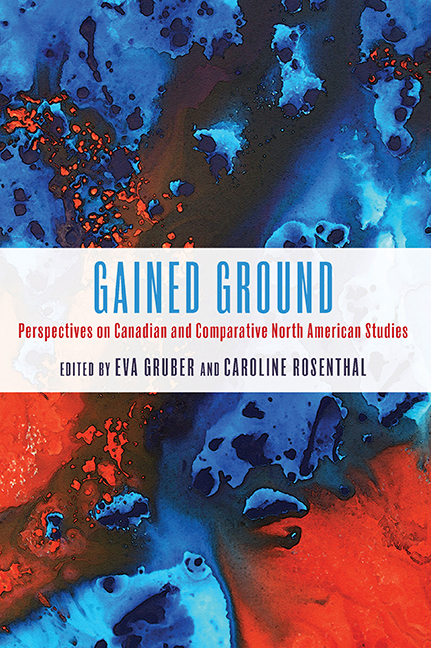Book contents
- Frontmatter
- Contents
- Preface and Acknowledgments
- Introduction
- Part I The Genesis of Canadian and Comparative North American Studies
- Mapping North America: Comparative North American Literature and Its Contexts
- The Scottish Invention of Canadian Literature? John Buchan in Canada
- Part II Comparative North American Studies: Literary Case Studies
- Part III Comparative North American Studies beyond Print
- Part IV Coda: Reingard Nischik and Transatlantic Canadian Criticism
- Index
Mapping North America: Comparative North American Literature and Its Contexts
from Part I - The Genesis of Canadian and Comparative North American Studies
Published online by Cambridge University Press: 26 October 2019
- Frontmatter
- Contents
- Preface and Acknowledgments
- Introduction
- Part I The Genesis of Canadian and Comparative North American Studies
- Mapping North America: Comparative North American Literature and Its Contexts
- The Scottish Invention of Canadian Literature? John Buchan in Canada
- Part II Comparative North American Studies: Literary Case Studies
- Part III Comparative North American Studies beyond Print
- Part IV Coda: Reingard Nischik and Transatlantic Canadian Criticism
- Index
Summary
Introduction
IN 1980, CANADIAN WRITER George Bowering published Burning Water, a novel about Captain George Vancouver's 1792 voyage and search for the Northwest Passage. The story begins as a “vision, com[ing] out of the far fog” (2007, 5) and materializes as the British explorers’ ships arrive on the coast of the Northwest Pacific. The characters begin to obsessively chart and name all rivers, islands, and inlets, not knowing what it is exactly that they concoct on their maps. As the narrator explains, “they followed the shoreline because what else was there? Especially with the clouds and rain and sometimes fog, and all the time the riptide and all the islands, what else was there? They followed the shoreline of the continent, if that was what it was, and the shoreline was seldom a question of north and south; it went through every degree on the compass. How it got eventually and generally north was difficult to see, or often so” (Bowering 2007, 103). This is how the author imagines the journey to have taken place, an exploration with imprecise objectives and an unknown outcome through an unnamed territory hidden behind fog. The nebulous continent reveals an outline with a rugged shore rather than clean-cut edges; any inlets that promise to lead far into the interior often end up as small streams. Although a general location, north, may be discernible, to fully make sense of the land, the explorers need to go in all directions. Nevertheless, the historical George Vancouver, unlike his fictional counterpart, returned to Britain and created maps that would long remain among the most accurate of the Pacific coast.
Let us take George Vancouver's voyage as a starting point for discussing Comparative North American Literature. Although its central subject, “North America,” is blurry at best, American Studies and Canadian Studies have become solid disciplines to chart the territory and create maps for navigating through the respective national literatures. A Comparative North American Studies approach does not proclaim the nation an insignificant category for investigation but accounts for cultural and social differences between the United States and Canada. The merit of this comparative approach lies in addressing the ways in which the two nations differ but are nonetheless connected in a North American context.
- Type
- Chapter
- Information
- Gained GroundPerspectives on Canadian and Comparative North American Studies, pp. 19 - 40Publisher: Boydell & BrewerPrint publication year: 2018



